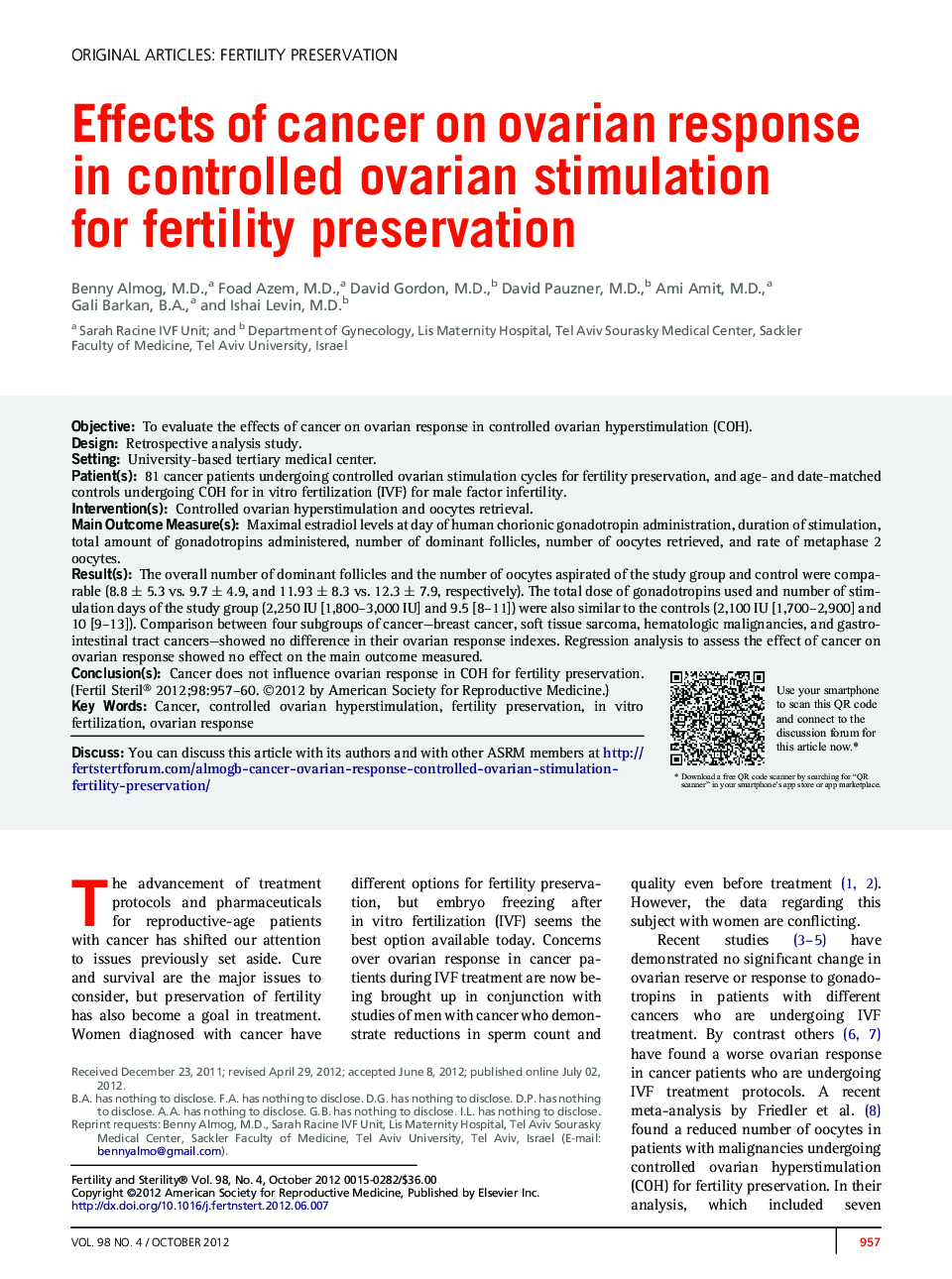| Article ID | Journal | Published Year | Pages | File Type |
|---|---|---|---|---|
| 3937138 | Fertility and Sterility | 2012 | 4 Pages |
ObjectiveTo evaluate the effects of cancer on ovarian response in controlled ovarian hyperstimulation (COH).DesignRetrospective analysis study.SettingUniversity-based tertiary medical center.Patient(s)81 cancer patients undergoing controlled ovarian stimulation cycles for fertility preservation, and age- and date-matched controls undergoing COH for in vitro fertilization (IVF) for male factor infertility.Intervention(s)Controlled ovarian hyperstimulation and oocytes retrieval.Main Outcome Measure(s)Maximal estradiol levels at day of human chorionic gonadotropin administration, duration of stimulation, total amount of gonadotropins administered, number of dominant follicles, number of oocytes retrieved, and rate of metaphase 2 oocytes.Result(s)The overall number of dominant follicles and the number of oocytes aspirated of the study group and control were comparable (8.8 ± 5.3 vs. 9.7 ± 4.9, and 11.93 ± 8.3 vs. 12.3 ± 7.9, respectively). The total dose of gonadotropins used and number of stimulation days of the study group (2,250 IU [1,800–3,000 IU] and 9.5 [8–11]) were also similar to the controls (2,100 IU [1,700–2,900] and 10 [9–13]). Comparison between four subgroups of cancer—breast cancer, soft tissue sarcoma, hematologic malignancies, and gastrointestinal tract cancers—showed no difference in their ovarian response indexes. Regression analysis to assess the effect of cancer on ovarian response showed no effect on the main outcome measured.Conclusion(s)Cancer does not influence ovarian response in COH for fertility preservation.
